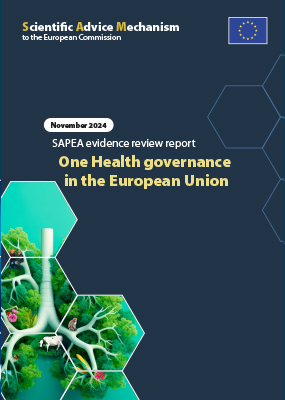21 Nov ONE HEALTH GOVERNANCE IN THE EUROPEAN UNION
The origins of the contemporary One Health concept can be traced to the middle of the twentieth century, and the growing recognition that important linkages and interdependencies exist between the management of human and animal health, and that therefore these should not be managed in isolation (e.g. Schwabe, 1964). More recently, aspects of ecosystem health have been included, with a greater appreciation of the influence of changing landscapes, deteriorating environmental conditions and climate change on infectious and non-communicable diseases (Hulme, 2020; Zinsstag et al, 2012), and on other aspects of human physical and mental health (Jimenez et al, 2021). Interest in the One Health approach received a strong boost during the Covid-19 pandemic, which demonstrated clear links between the prevention of, and response to, disease outbreaks, tackling antimicrobial resistance, equitable access to high-quality healthcare, and protection of ecosystems.
But putting One Health into practice is not always straightforward. Not everyone can agree on exactly what it means, and while important progress towards a precise definition has been made through the work of the interdisciplinary One Health High Level Expert Panel (OHHLEP),1 significant ambiguities remain. Moreover, the breadth of topics and aspects covered, ranging from human and animal health to ecosystems, landscape changes and urban infrastructures (Ramaswami, 2020), presents formidable policy, governance, and financial challenges. For One Health to achieve its goals, practitioners from different sectors with different competences and expertise must work together and be open to different forms of knowledge. New types of integrated arrangements within and beyond European Union member states are needed to overcome the barriers between separated offices and departments that traditionally pursue well-defined agendas with clearly delimited objectives (Alper & Liao, 2023).
Strengthening One Health operationalisation in the EU has complex policy implications across multiple policy areas, including:
- research and development
- human and animal health
- food safety and security
- biodiversity and sustainable ecosystems
- agriculture
- pandemic prevention.
[/vc_column_text][/vc_column][/vc_row]





Sorry, the comment form is closed at this time.